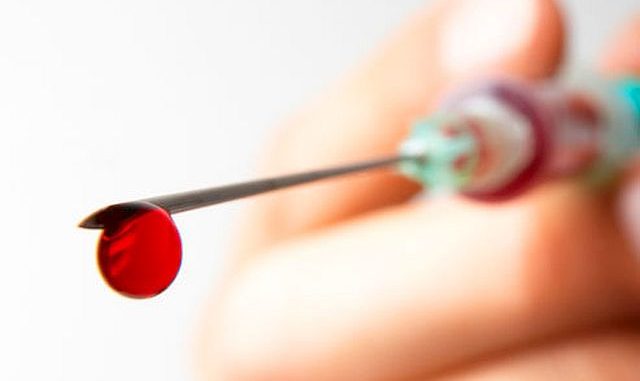
A new blood test that can detect cancer cells could improve the treatment for prostate cancer.
Scientists say the test can speed up the development of new therapies.

BYPASS THE CENSORS
Sign up to get unfiltered news delivered straight to your inbox.
You can unsubscribe any time. By subscribing you agree to our Terms of Use
Latest Video
By measuring the numbers of circulating tumor cells it can identify which men are benefiting least from a drug treatment in as little as 12 weeks.
The Croydon Guardian reports:
The test is expected to help patients switch to alternative, more effective treatments earlier than is currently possible. It could also hasten the development of new cancer treatments by speeding up clinical trials.
Lead scientist Professor Johann de Bono, from the Institute of Cancer Research, said: “The past decade has seen unprecedented success in the development of new drugs for advanced, metastatic (spreading) prostate cancer.
“One of the major challenges we face now is in optimising the use of these new treatments by making sure that the right men receive them, and only for as long as they are benefiting.
“Our study showed that circulating tumour cells act as an early warning test for men who are not responding to treatment – potentially allowing doctors to switch patients early to alternative options.
“We hope our results will not only lead to better use of the current range of treatments, but also speed up the discovery of new drugs by providing an important new tool to the researchers trialling them.”
As cancer tumours grow and progress, they shed cells into the bloodstream which are carried around the body to seed new secondary tumours.
The spread of cancer to vital organs such as the liver and brain is the chief reason people die from the disease. Each year, prostate cancer is diagnosed in around 41,000 men in the UK and causes almost 11,000 deaths.
For the new study, blood samples were taken from 711 men taking part in a major Phase III trial of the prostate cancer drug abiraterone.
Researchers measured numbers of circulating tumour cells at four-week periods after the start of treatment with the drug, along with a range of other blood biomarkers including LDH (lactate dehydrogenase) which can indicate general tissue damage.
A correlation was found between those men who responded least well to treatment with abiraterone and higher levels of cancer cells and LDH in the bloodstream 12 weeks after starting treatment.
The findings are published in the Journal of Clinical Oncology.
Professor Paul Workman, chief executive of The Institute of Cancer Research, said: “Using a blood test to assess whether a cancer drug is working would be much easier and more convenient than other methods of monitoring treatment, and might pick up signs that a tumour is not responding weeks or months earlier than is achievable now.
“It could give doctors a valuable early warning that treatment is not working, and an opportunity to switch the patient promptly to an alternative drug.”
Dr Iain Frame, director of research at the charity Prostate Cancer UK, which co-funded the study, said: “This research could help solve two of the biggest problems still facing men with advanced prostate cancer.
“Firstly, as it stands there is no good way to tell quickly if the treatment a man is receiving is working. Measuring tumour cells circulating the body could give doctors a test that tells them when a treatment isn’t working, so that men can move to an alternative that works better for them much sooner.
“Secondly, there simply aren’t enough treatments available for men with advanced prostate cancer. However, this work could make clinical trials of new drugs quicker, cheaper and easier, which would help make sure current research to develop essential new treatments … is translated into approved drugs that are available to men much more quickly.”


